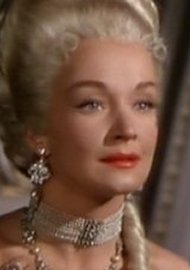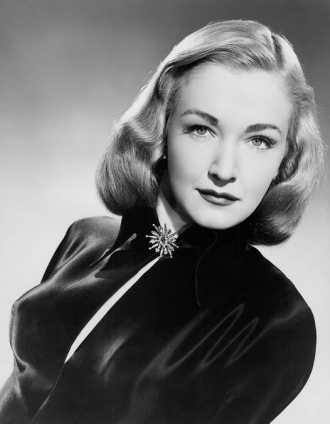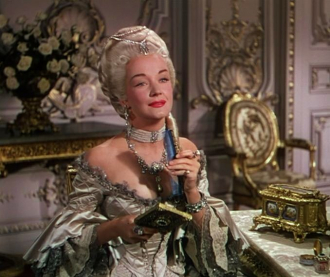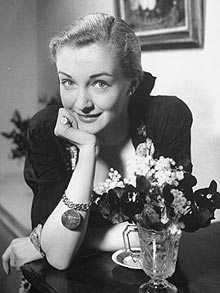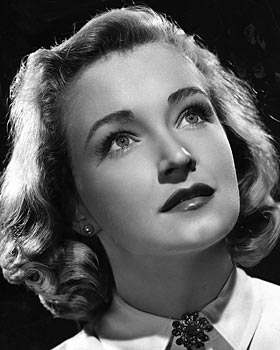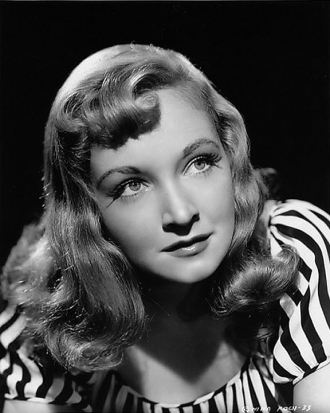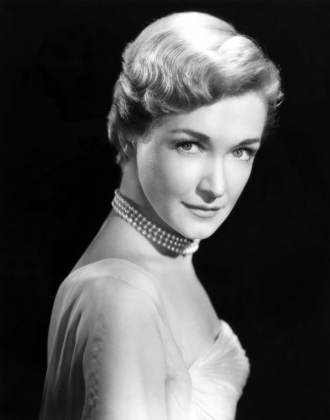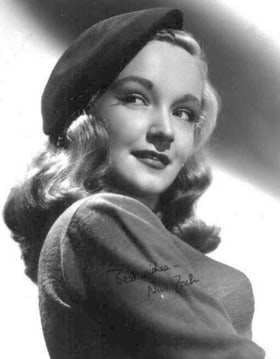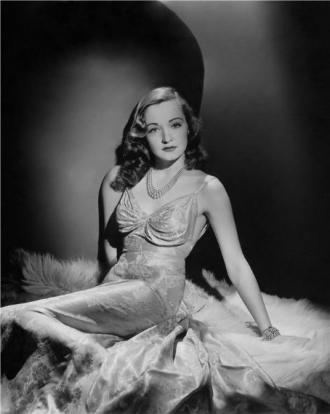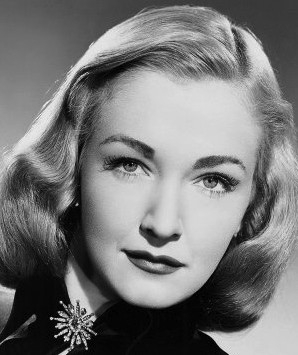Daughter of Dirk Fock, conductor of the Amsterdams Concertgebouworkest, and actress and singer Consuelo Flowerton.
Last name "Foch" rhymes with "Gosh".
In Italy, most of her films were dubbed by Rosetta Calavetta, but was also dubbed by Lydia Simoneschi (in My Name Is Julia Ross (1945)); Rina Morelli (in The Ten Commandments (1956)) and Giovanna Scotto.
Ex-daughter-in-law of Lawrence Lipton.
Played the first person whose murder was investigated by the TV detective Lt. Columbo; killed in the pilot episode/TV movie Prescription: Murder (1968).
Her father, Dirk Fock, was born in Batavia, Java (where her grandfather was governor general of the Dutch East Indies) on June 18, 1886. He died in Locarno, Switzerland on May 24, 1973. He studied, composed and conducted orchestral music in Europe, but made his American Debut as conductor with a specially assembled orchestra at Carnegie Hall in N.Y. on April 12, 1920; also conducted orchestral groups elsewhere in the U.S., and in Vienna.
Fell ill while teaching "Directing the Actor," a popular course at USC's School of Cinematic Arts, where she taught for 40 years. She died a day later at the Ronald Reagan UCLA Medical Center of complications from long-term myelodysplasia, a blood disorder.
Her parents divorced when she was a toddler.
Had a son, Dr. Dirk De Brito (born 1960), with 'Dennis De Brito'.
Nina and her husband James Lipton became lifelong friends with Diana Ross after co-starring with her in Mahogany (1975).
Although she played Charlton Heston's adoptive mother, Yul Brynner's aunt and Cedric Hardwicke's sister in The Ten Commandments (1956), she was a year younger than Heston, four years younger than Brynner and 31 years younger than Hardwicke.
Was left-handed.
Had to wear contact lenses to make her blue eyes brown in The Ten Commandments (1956).
Received a special award from the Maryland State Council of the American Jewish Congress for her performance in The Ten Commandments (1956).
Personal Quotes (13)
Believe it or not, teaching is the most rewarding thing I do. It has been the most successful thing I've done in my life.
[on her father] He hated my mother sufficiently, my mother hated him.
[on her Oscar nomination for Executive Suite (1954)] I don't think my performance was that good, but I felt that it wasn't fair to put Eva Marie Saint in supporting. Not that I think I would have won.
[2007] I've been busy in my career and all my life. But I think the biggest thing I've done in life is teach. Breaking down every scene, every line, every beat, and putting the piece together. That's my contribution.
Now if I'd been a little more ambitious and not so sure I was nothing, the unattractive daughter of a beautiful woman and a distinguished man, I could have fought harder, and I would have gotten further.
[on her entry into the studio system] I had to do something. I didn't really have a home . . . I was a pitiful child, an unloved child.
You have a choice. You either get afraid, or you get so afraid that you're angry. It is that anger, that rage, that saved my life, I think.
You know what Einstein said? "Happiness is for cattle." You're not supposed to be happy, you're supposed to feel that you've achieved something.
I should have been directing all along, that I should have been doing. Nobody would let me, because I was a woman.
[on her The Dark Past (1948) co-stars] Bill Holden [William Holden] was a sweetheart. He was lovely to work with. I think Bill's father had made him believe that acting wasn't really a fit occupation for a man, which gave him great unhappiness. But we got along fine. Lee [Lee J. Cobb] was obnoxious. He'd come in every morning and complain about the film and how awful it was. It drove Bill crazy - he'd be dying inside. But that's how Lee cranked up his motor, by bad-mouthing everything. So I'd commiserate with Bill and get his spirits up again.
[on her early B-movies] It's extraordinary how fast we made them. You'd shoot an entire picture in 10 or 12 days. We worked six days a week. There was no turn-around time back then, so you'd work into the evening, go home for six hours and then come back to work again. The movies were called noir because no one had the time to light anything.
I've always been an outsider. In America, I've been a European. In Europe, I'm an American. On Broadway, I was from Hollywood; in Hollywood, I was from Broadway.
I wasn't very happy at Columbia. I didn't like Harry Cohn and his ilk. They wished I was prettier, had luscious lips and big tits, but I didn't. But when you were under contract to a studio, you were stuck.

